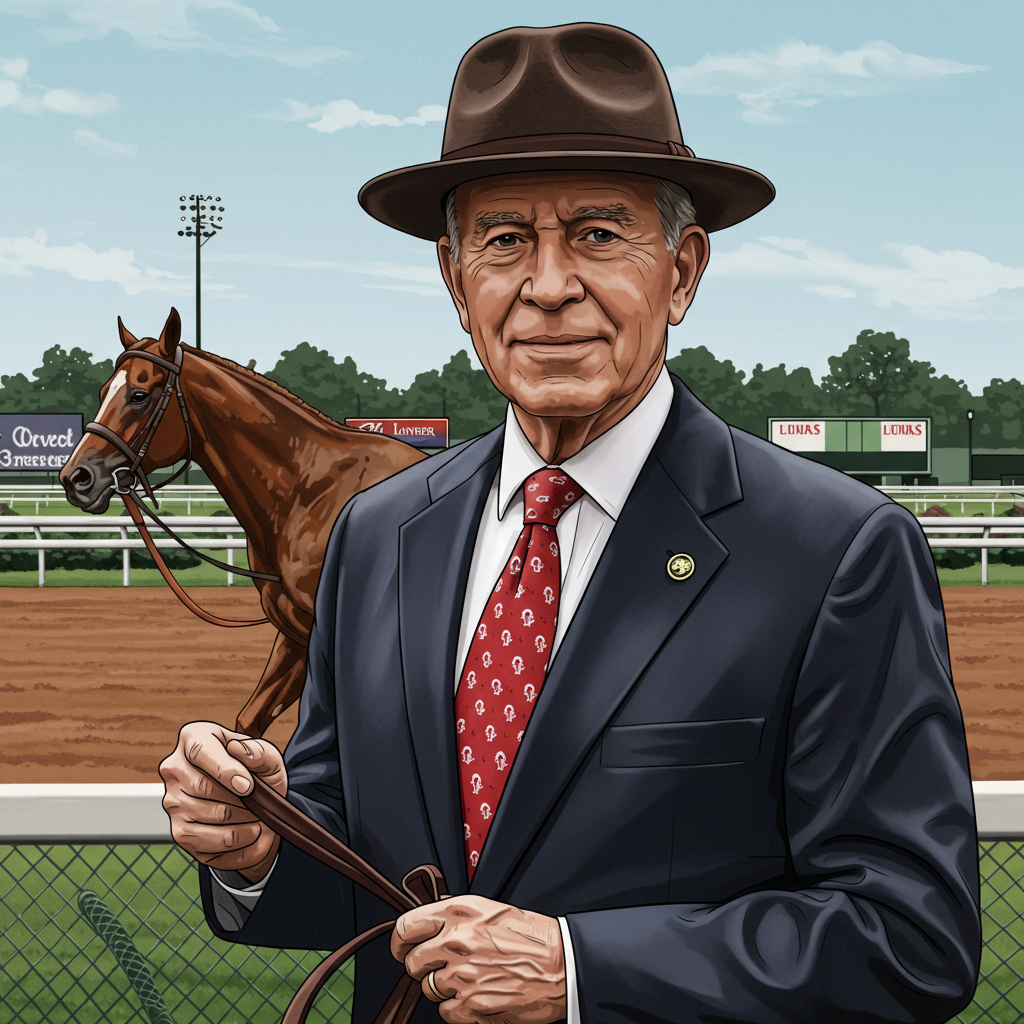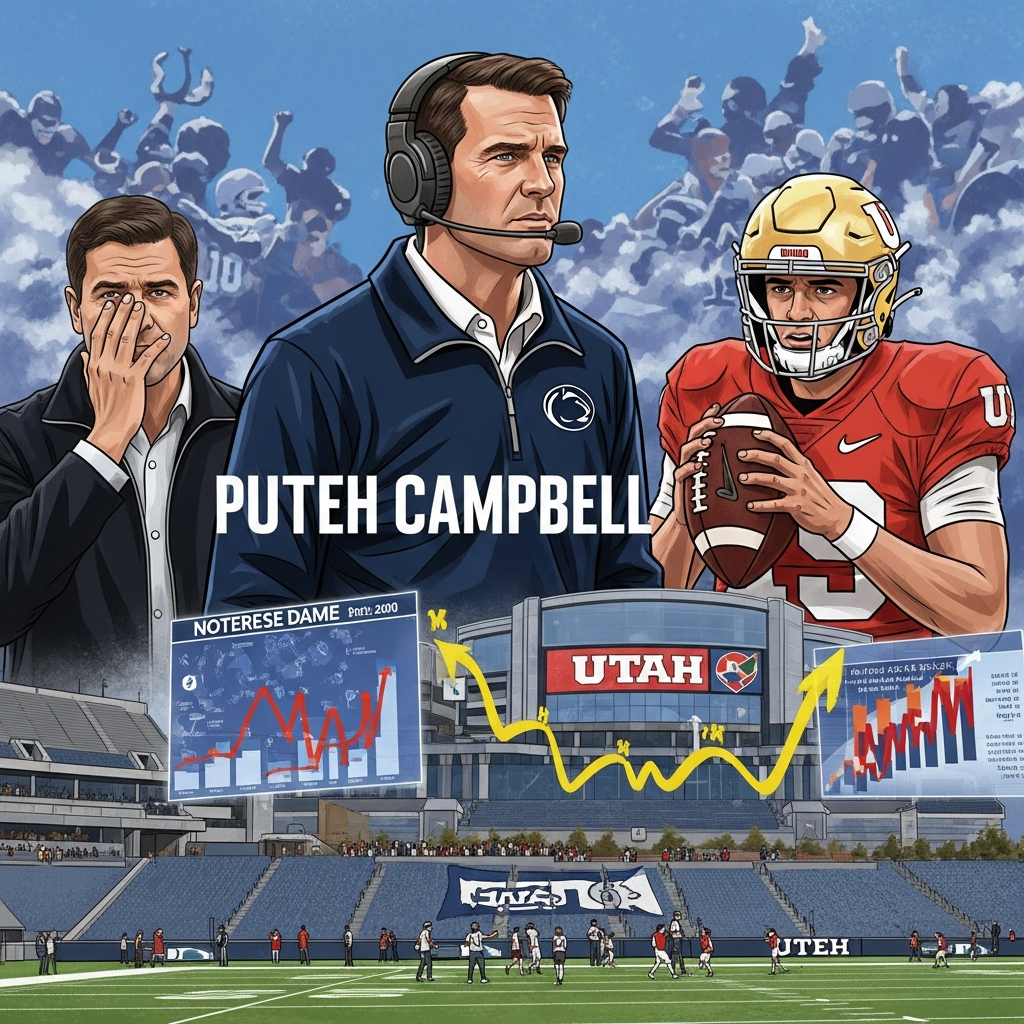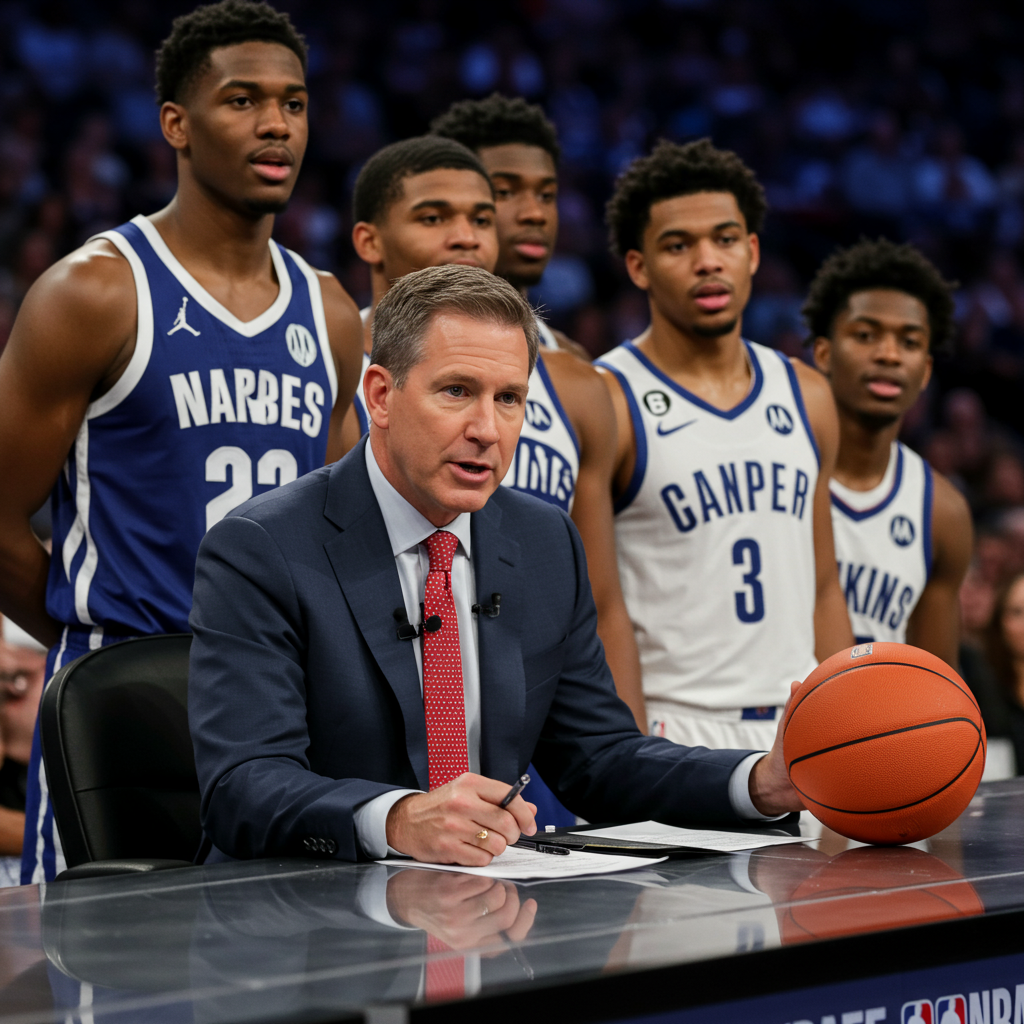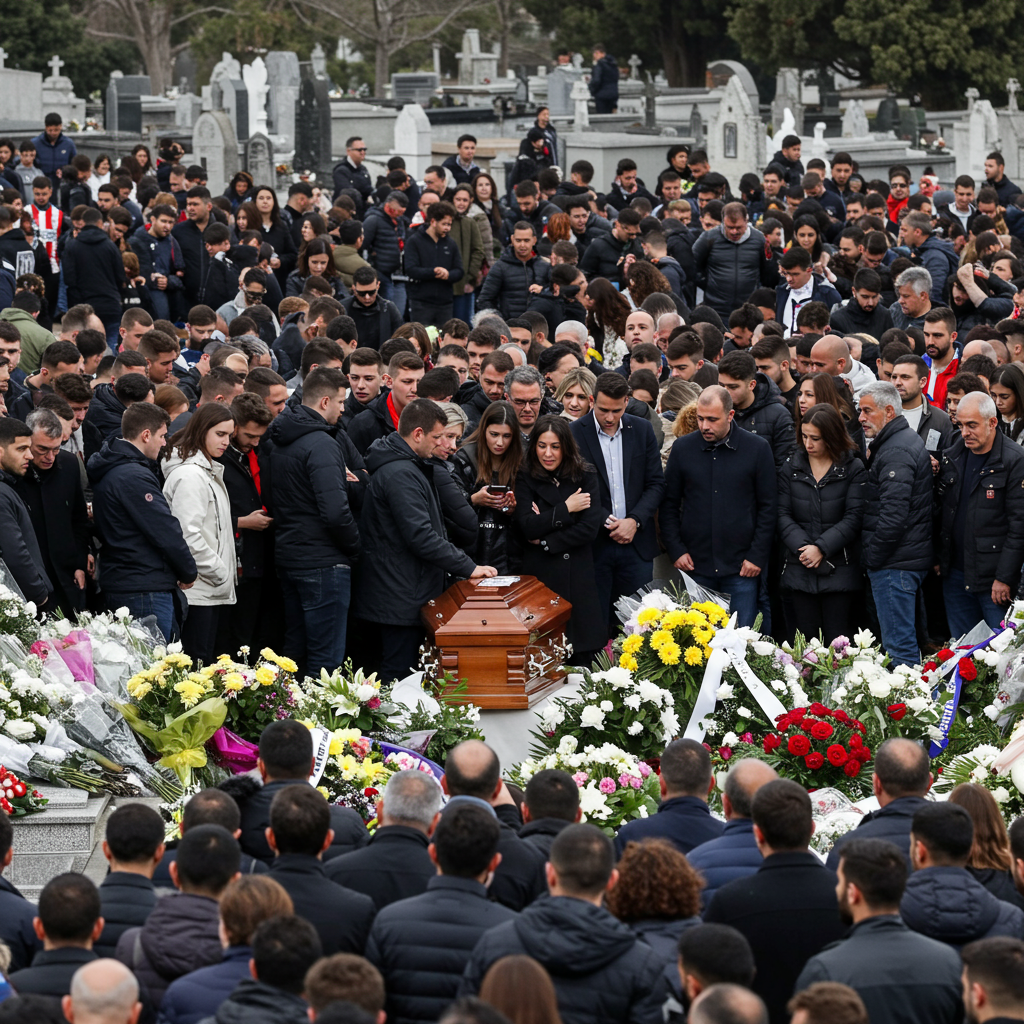The horse racing world mourns the loss of a giant. D. Wayne lukas, the legendary Hall of Fame trainer who redefined the sport for decades, has died. He passed away at his Louisville, Kentucky, home on Saturday night, June 29, 2025, at the age of 89. Lukas was a towering figure known for his unparalleled success in racing’s biggest events and his lasting impact on generations of horsemen and horsewomen. His passing marks the end of an era in Thoroughbred racing.
Family members confirmed his death on Sunday. Lukas had recently returned home for hospice care. This followed a hospitalization for a severe MRSA blood infection. The infection caused significant damage to his heart and digestive system. It also worsened pre-existing chronic conditions. Lukas chose peace, family, and faith in his final days. He opted against aggressive treatment options. His family stated that he devoted his life not only to horses but to the entire industry. He developed countless individuals within the sport. Lukas also grew the game by bringing new fans into the winner’s circle.
A Career Defined by Unprecedented Success
D. Wayne Lukas didn’t just win races; he dominated the biggest stages. His record in Triple Crown races is nothing short of spectacular. He amassed 15 victories across the Kentucky Derby, Preakness Stakes, and Belmont Stakes. This includes four Kentucky Derby wins. Only fellow Hall of Famer Bob Baffert has won more Triple Crown events. Lukas also holds a record-tying 20 victories in the prestigious Breeders’ Cup World Championships. His horses won major races with remarkable consistency.
Over his career, Lukas achieved 4,967 documented wins in Thoroughbred racing. His trainees started more than 30,600 times. They earned over $310 million in purse money. These numbers underscore his incredible longevity and consistent success at the highest levels. He earned four Eclipse Awards as the nation’s outstanding trainer. He was the leading trainer by wins for four consecutive years from 1987 to 1990. Lukas also became the first trainer to surpass $100 million and then $200 million in career earnings.
Triple Crown and Breeders’ Cup Dominance
Lukas was a master strategist when it came to targeting classic races. His four Kentucky Derby winners were Winning Colors, Grindstone, Thunder Gulch, and Charismatic. Notably, none of his Derby winners were the race favorite. Winning Colors was just the third filly ever to win the “Run for the Roses.” He captured the Preakness Stakes seven times. These wins came with horses like Codex, Tank’s Prospect, Tabasco Cat, Timber Country, Charismatic, Oxbow, and Seize the Grey. His four Belmont Stakes victories included Tabasco Cat, Thunder Gulch, Editor’s Note, and Commendable. From 1994 through 1996, he won six consecutive Triple Crown races with various horses. In 1995, he won all three classics with two different horses. Thunder Gulch won the Derby and Belmont, while Timber Country took the Preakness.
His success extended to the Breeders’ Cup. He was a dominant force in the early years of the championship event. He secured multiple Breeders’ Cup wins annually between 1985 and 1988. His total of 20 Breeders’ Cup victories ties him for the record. He conditioned three horses named Horse of the Year: Criminal Type, Lady’s Secret, and Charismatic. Lukas was also known for his willingness to test talented fillies against males in major races. Horses like Winning Colors, Serena’s Song, and Lady’s Secret proved his confidence in their ability.
From Wisconsin Farms to Racing’s Pinnacle
Born Darnell Wayne Lukas on September 2, 1935, in Antigo, Wisconsin, his early life wasn’t centered around Kentucky’s breeding sheds. He grew up on a farm. Horse racing in his area was mostly limited to county fairs. Lukas initially pursued a career in education. He earned a master’s degree from the University of Wisconsin. He became a successful high school basketball coach. He even had a brief stint as an assistant coach at the Big Ten level. This background in coaching would later define his approach to training. He maintained a close friendship with legendary basketball coach Bob Knight. He often expressed admiration for Knight’s competitive drive.
He transitioned to horse training later in life, beginning with Quarter Horses. He achieved significant success in this realm. He trained 24 world champions and won 739 Quarter Horse races. Around a decade later, in the late 1970s, he shifted his focus to Thoroughbreds. His first Thoroughbred win came in 1977. He immediately targeted the sport’s highest levels. His ambitious vision and ability to paint a compelling picture of success attracted prominent owners. Figures like Eugene Klein, W.T. Young, and Bob and Beverly Lewis provided him with the resources needed to build an empire. Lukas often credited these owners for making him a better trainer.
Pioneering a National Stable Model
Lukas revolutionized Thoroughbred training with his innovative approach. He pioneered the concept of a national stable. He replicated his meticulously high standards across multiple locations. These included California, New York, Florida, and Kentucky. This decentralized model allowed him to campaign horses strategically across the country. He could place them in optimal races. This system, combined with a seemingly endless supply of high-caliber horses, powered his stable. His barn led North America in earnings every year but one from 1983 to 1997. In 1987, he set a record with 92 stakes wins nationwide. This mark stood for nearly two decades.
The “Coach” and His Lasting Legacy
Lukas was affectionately known throughout the barns and racetracks as “Coach.” This nickname stemmed partly from his earlier career. However, it became synonymous with his role as a mentor. He possessed an incredible eye for talent, not just in horses, but in people. Lukas is widely celebrated for developing a “coaching tree” of successful trainers. Many of racing’s current top conditioners started as assistants under Lukas.
This esteemed list includes Hall of Famer Todd Pletcher. Future Hall of Famer Brad Cox also began his career working for Lukas. Other notable trainers who learned their craft from “The Coach” include Kiaran McLaughlin, Dallas Stewart, Mike Maker, Mark Hennig, Randy Bradshaw, George Weaver, and Bobby Barnett. Former assistants praised the disciplined, first-class environment of his barns. They highlighted his emphasis on horse care and attention to detail. This legacy of mentorship is often cited as one of his most significant contributions to the sport.
Lukas remained remarkably hands-on throughout his career. Even in his late 80s, he would rise early. He would get on his pony. He would go out to the track himself. He preferred this to leaving the day-to-day work entirely to assistants. He believed in the critical importance of understanding the animal. “The whole secret of this game,” Lukas once said, “is being able to read the horse: Read what he needs, what he doesn’t need, what he can’t do, what he can do.” He argued that while resources are widely available, “The horse is the difference and what we do with him in reading him.”
Resilience in the Face of Adversity
Lukas’s life and career were not without profound challenges. A devastating event occurred in 1993 at Santa Anita Park. His son and top assistant, Jeff Lukas, suffered a severe injury. He was struck by a loose horse. Jeff, a seasoned horseman, sustained a debilitating head injury. He was never able to return to working safely around horses. He later moved to Oklahoma. His father provided a home for him. Jeff passed away in 2016 at the age of 58. Wayne Lukas was the first person to reach his son after the accident. This moment deeply impacted him. Remarkably, Lukas continued to train the colt involved, Tabasco Cat. The horse went on to win multiple classic races.
Following the dominant years of the 1980s and 90s, Lukas’s stable size decreased. Owners retired or moved on. The industry also faced a downturn. Yet, he showed immense resilience. He maintained his high standards and his positive attitude. In his later years, he experienced a remarkable career resurgence. He called this his “Coach years.” He remained competitive on racing’s biggest stages. At age 86, he won the Kentucky Oaks for a fifth time in 2022 with Secret Oath. In 2024, at age 88, he became the oldest trainer to win a Triple Crown race. This came with Seize the Grey in the Preakness Stakes. This final classic win was particularly special. Lukas highlighted the camaraderie shown by rival trainers who congratulated him.
Tributes and a Lasting Impact
Tributes have poured in from across the racing world. Churchill Downs Incorporated CEO Bill Carstanjen described Lukas as “one of the great champions of Churchill Downs.” He called him “one of the most significant figures in Thoroughbred racing over the last 50 years.” Carstanjen added, “We will miss his humor, his wisdom and his unmatched capacity to thrill the fans.” Sebastian “Bas” Nicholl, Lukas’s assistant trainer, spoke to his mentor’s impact. “Wayne built a legacy that will never be matched,” Nicholl stated. “Every decision I make, every horse I saddle, I’ll hear his voice in the back of my mind.” He emphasized that his focus is on honoring Lukas’s achievements.
Lukas’s longtime friend and rival, Bob Baffert, also paid tribute. Despite their media-portrayed rivalry, they shared a genuine friendship. They often dined together after races where they competed. Baffert called Lukas “a tremendous horseman, probably the greatest who ever lived.” He highlighted Lukas’s meticulous care for his horses and barns. Lukas inducted Baffert into the Hall of Fame. This demonstrated their mutual respect.
D. Wayne Lukas was inducted into the U.S. Racing Hall of Fame in 1999. He was also inducted into the American Quarter Horse Hall of Fame in 2007. He was a dedicated ambassador for the sport in his later years. He shared his wisdom with fans. He even engaged with microshare ownership groups. He advised owners to choose trainers with integrity. He was committed to preserving racing history. He donated memorabilia to the Kentucky Derby Museum. He received the Eclipse Award of Merit. Churchill Downs named a race in his honor.
Lukas is survived by his fifth wife, Laurie. He is also survived by his grandchildren, Brady Wayne Lukas and Kelly Roy. His great-grandchildren are Johnny Roy, Thomas Roy, Walker Wayne Lukas, and Quinn Palmer Lukas.
Frequently Asked Questions
What were D. Wayne Lukas’s major career achievements and records?
D. Wayne Lukas was one of the most successful horse trainers in history. He won 15 Triple Crown races (4 Kentucky Derbies, 7 Preakness Stakes, 4 Belmont Stakes). Only Bob Baffert has more Triple Crown wins. Lukas also holds a record-tying 20 Breeders’ Cup victories. He trained 4,967 Thoroughbred winners with earnings over $310 million. He was a four-time Eclipse Award winner for outstanding trainer and is a member of both the U.S. Racing Hall of Fame and the American Quarter Horse Hall of Fame. He was the first trainer to reach $100 million and $200 million in career earnings.
Who were some notable horses and trainers developed by D. Wayne Lukas?
D. Wayne Lukas trained numerous champions, including Triple Crown race winners like Winning Colors, Thunder Gulch, Tabasco Cat, Charismatic, Oxbow, and Seize the Grey. Other famous horses he trained include Lady’s Secret, Criminal Type, and Serena’s Song. Beyond horses, Lukas is celebrated for mentoring many trainers who became successful in their own right. His “coaching tree” includes prominent names like Todd Pletcher, Brad Cox, Kiaran McLaughlin, Dallas Stewart, and Mike Maker, among others.
Why was D. Wayne Lukas known by the nickname “The Coach”?
D. Wayne Lukas earned the nickname “The Coach” for two main reasons. First, he had a previous career coaching high school basketball before becoming a professional horse trainer. Second, and perhaps more significantly, he was a highly influential mentor figure in horse racing. He developed and trained a large number of successful assistants who went on to become prominent trainers themselves, effectively creating a “coaching tree” within the sport. His leadership style and dedication to teaching others solidified this moniker.
In his final days, D. Wayne Lukas chose to be at home, surrounded by family. His death marks a profound loss for the horse racing community. Yet, his remarkable achievements, innovative training methods, and the countless individuals he mentored ensure his legacy will endure for generations. The sport has lost one of its most competitive, passionate, and influential figures. “The Coach” leaves behind a winning tradition and an indelible mark on the history of racing.




